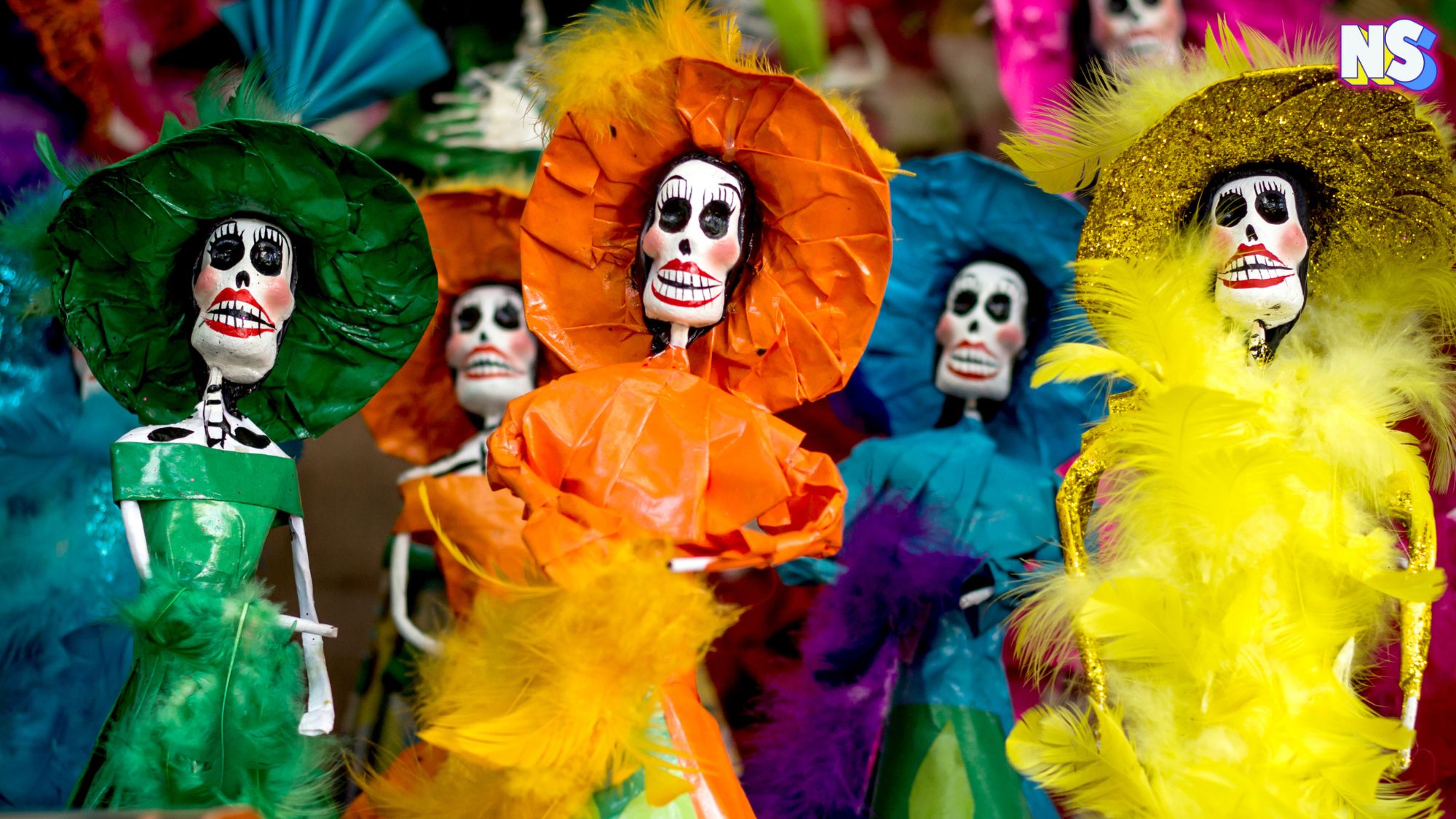You know the word “gringo,” right? It’s the catch-all term for anyone who hails from the land of hamburgers, the Yankees, and asking for the manager. But, if we’re being totally honest, “gringo” is one of those words with a lot of flexibility.
Did your cousin Jose move to Ohio and can no longer handle jalapeños? He’s a gringo. Remember when Justin Bieber tried to sing “Despacito” for some fans? Gringo. Or that time when your co-worker Emma came back from Cancun talking about “authentic” huevos rancheros from the buffet? Gringa.
OK, the word is really an insult for everyone who doesn't quite fit the Latino mold. But where the heck did this all-encompassing wonderfully vague term actually come from? Unlike the word itself, its history is a bit complicated. Looks like “gringo” is a 400-year-old word that’s evolved into a cross-cultural phenomenon. Then again, the modern term may have originated in Mexico, where one group of people were asking another group, from the North, to just "Go!"
A 400-year-old word and Foreign Accents
According to the experts at Dictionary.com, the term “gringo” first appeared in the 1787 Castilian Dictionary. Author Esteban de Terreros y Pando defined it “as a term used in the southern Spanish port city of Málaga to describe foreign, heavily accented speakers of Spanish. In Spain’s capital Madrid, Esteban noted similar use, though typically it was aimed at Irish foreigners.”
Not so fast, Esteban de Terreros y Pando. Some say the original “gringos” were not Irish, but Greek. And that the term has nothing to do with foreign accents at a Spanish port. For the true meaning of the word, literature fans credit none other than the most famous English scribe to have ever lived: Shakespeare. The playwright may have accidentally created the world’s first gringo.
“It was Greek to Me”
Some believe the word "gringo" comes from the Spanish word for people from Greece “Greigos.” It would be a reference to a line from Shakespeare's 1599 play "Julius Caesar," in which the character Casca told Cassius “... but those that understood him smiled at one another and shook their heads; but, for mine own part, it was Greek to me.”
Casca is now misquoted with “it’s all Greek to me” becoming a popular English idiom meaning that something just doesn’t make sense. It’s given us the term “gringo” from the notion that someone is perplexing or foreign.
Urban Myths and Military “Green-Go”
Then again, there are others on social media who think these linguistic and poetic roots for the word “gringo” are too academic. “My wife always said it was because the uniforms of the USA army were green and people wanted the greens to go out of their country so ‘green-go’ but I’m pretty certain she just made that up,” @superdannn123 posted on Reddit.
While entertaining and popular, most believe this “green-go” theory is likely more myth than fact.
A Reddit user from Brazil, @lepeluga, replies: “Your wife didn't make that up, other people made that up. That's just a myth started by people who didn't know the answer a long time ago.” And Adds his/her/their take on the expression: “The word originated in Spain, it's unclear what the exact etymological origin is, but it was likely derived from 'griego' being used to say that something is foreign.”
Over on YouTube, @micasigning provides yet another somewhat modern origin story for the term, and it once again refers to U.S. soldiers in a foreign land. “My father (born in 1936, grew up in Brownsville TX on the border and whose father was a history teacher) claims the origin of this word to be from when the Americans invaded Mexico from the coast at Veracruz and marched on Mexico City. They sang ‘Green grows the grass all covered with dew …’ and the Mexicans told them to go back to your green – and called them Green-Gos (instead of Green-Grows). He doesn’t recall where he heard this but I remember him telling this story since I was young …”
This is actually a popular theory and refers to the Irish folk song “Green Grow the Lilacs.”
So, Where Did “Gringo” Actually Come From?
From the streets of Málaga to Shakespearean phrases and urban legends, the origins of the word “gringo” are as complex — and entertaining — as language origins can be. So, where exactly did “gringo” come from? With so many stories and possibilities, we may never know for sure. And if you’re still left scratching your head, well then … maybe it’s just all Greek to you!





